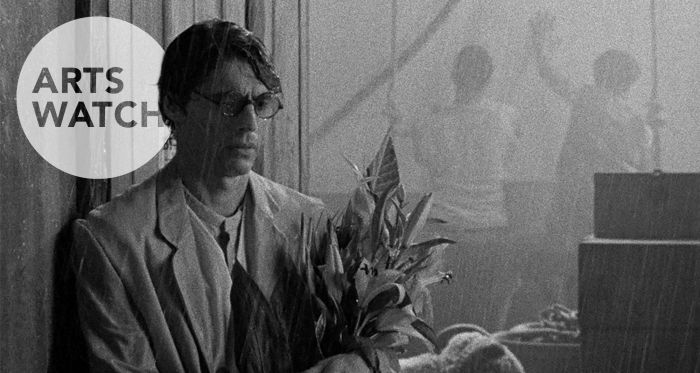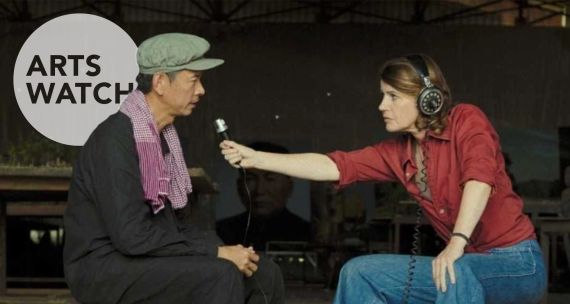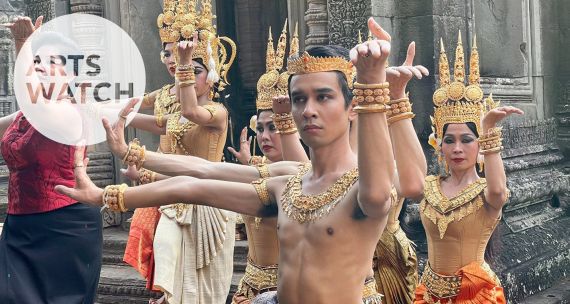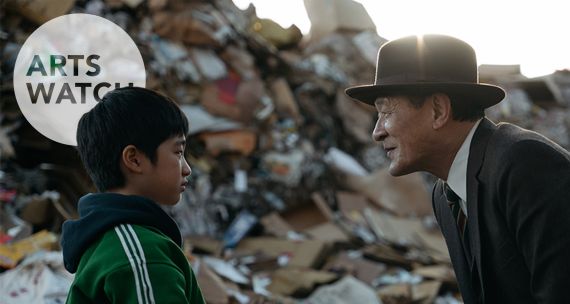Synopsis: Grand Tour, directed by Miguel Gomes, is set in colonial Burma during the First World War and features the parallel journeys of Edward (Gonçalo Waddington), a timid British civil servant, and Molly (Crista Alfaiate), his spirited fiancée. When Edward decides to flee from his impending marriage, he journeys through Asia, but with Molly on his trail, determined to find him. The travelogue weaves together present-day landscapes with historical recreations and blends black and white footage with voiceovers in local languages, inviting viewers to drink in Asia’s rich scenery. However, viewers hoping for a gripping tale may find themselves drawn more by the sights than by the story’s emotional core.
A Clash of Desires: Between Feeling and Chasing
The film begins in 1917, with Edward, dressed in his finest suit, standing in the pouring rain on the docks of Rangoon (modern day Yangon). As he begins contemplating his upcoming marriage to Molly, his fiancée of seven years, he realizes that he no longer remembers the look of her face and questions whether he still wants to marry her. In haste, he departs for Singapore, embarking on what becomes a “grand tour” of Asia. It is a decision to flee forever rather than address the root sources of his depression and restlessness, which, unfortunately, the film never fully explores.
Edward’s departure coincides with Molly’s arrival at the very same docks where her fiancée stood just moments earlier. Molly finds her fiancé’s decision to leave rather amusing and decides to pursue Edward on a “grand chase” that takes her from colonial Burma to Singapore, Thailand, and Vietnam before she collapses from an illness. The illness turns out to be terminal, fuelling Molly’s desperation to marry — and soon. But whether she is desperate to marry Edward, a conflicted man who does not share her desire to be wed, is a question that fuels much frustration.
Picturesque Asia and Western Privilege
During Edward and Molly’s separate 'grand tours' of Asia, we are given glimpses of the region’s past and present: the jungles of Thailand and palaces of Bangkok, rows of mopeds swarming a roundabout in Saigon, and a karaoke restaurant in Manila. The scenes, while visually captivating, may leave some viewers asking, “Is that really all?”
While Edward and Molly both encounter numerous individuals who provide the right kind of encouragement and wisdom at the right moment, these characters merely appear then disappear from the frames, seemingly existing solely for the benefit of the Westerners. This includes a Japanese monk who wears a basket over his head and offers wise words to an unmoored Edward in the mountains of Osaka, and a Thai helper who serves as a translator for Molly on the dangerous waters of the Yangtze River. If anything, the secondary characters reaffirm the stark juxtaposition of Edward and Molly, the two Westerners enjoying privileged lifestyles and doing so at the expense of the locals. In one of the final scenes, Molly decides to continue to pursue Edward during a treacherous storm on the Yangtze. The decision results in the deaths of several boatmen and a priest, but it is a decision for which she shows no regret.
All in all, while the audience is invited to be enthralled by the various wonders Asia has to offer, Grand Tour is a story about neither Asia nor its people.
About the Vancouver International Film Festival (VIFF)
Founded in 1982, The Greater Vancouver International Film Festival Society is a not-for-profit cultural organization that operates the internationally acclaimed Vancouver International Film Festival (VIFF) and the year-round programming of the theatres at the VIFF Centre. VIFF encourages the exploration of global cultures through the art of cinema, showcasing films as a platform to celebrate the complexity of the human condition.






